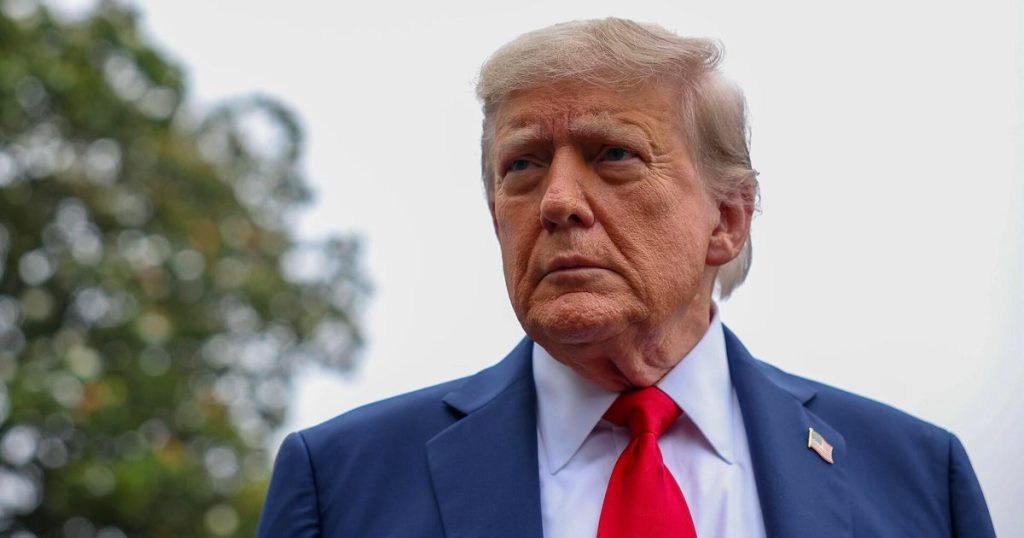On Friday, a significant ruling emerged from the U.S. District Court as a federal judge invalidated an executive order issued by former President Donald Trump targeting the law firm Susman Godfrey. Judge Loren AliKhan deemed the executive order unconstitutional, ruling that it threatened the independence of the legal industry. This decision adds to a growing trend of legal victories for several major law firms that challenged similar orders from Trump, marking a pivotal moment in the ongoing legal battles surrounding the former president’s directives.
| Article Subheadings |
|---|
| 1) Background of the Executive Order |
| 2) Legal Challenges from Major Law Firms |
| 3) Impacts of the Ruling |
| 4) Broader Implications for Legal Independence |
| 5) The Response from Other Law Firms |
Background of the Executive Order
The executive order targeting Susman Godfrey was signed by former President Donald Trump in April, and it aimed to impose punitive measures on the firm, which was accused of being intricately involved in “weaponizing the American legal system.” In the backdrop of the executive order was an ongoing defamation lawsuit against Fox News, for which Susman Godfrey represented Dominion Voting Systems. The lawsuit stemmed from unfounded allegations made by the network regarding Dominion’s role in allegedly rigging the 2020 election against Trump. The executive order, along with similar ones aimed at other law firms, intended to restrict access to federal buildings, security clearances for employees, and even put the firms’ commercial dealings under scrutiny.
Legal Challenges from Major Law Firms
Following the issuance of the executive order, multiple firms, including Susman Godfrey, swiftly initiated legal challenges against the Trump administration. Each firm argued that the orders violated fundamental constitutional rights, notably the First and Fifth Amendments. The significant aspect of this legal battle is that four different judges have ruled in favor of these firms, skipping trials altogether, which is an uncommon judicial maneuver meant to expedite justice. The administration, meanwhile, chose not to appeal any of the decisions, leaving the original executive order in a precarious legal position.
Impacts of the Ruling
The ruling by Judge Loren AliKhan established a robust legal precedent surrounding the independence of the legal profession in the United States. In her judgment, she emphatically stated that the executive order was “unconstitutional from beginning to end,” highlighting that it not only violated established laws but also infringed upon the freedom and independence that is vital for the rule of law. AliKhan’s decision is particularly notable given that it follows a temporary relief she granted to Susman Godfrey in April, suggesting her inclination toward favoring the firm right from the beginning of the legal proceedings.
Broader Implications for Legal Independence
This ruling and others like it underscore a larger trend in which the judiciary acts as a safeguard for legal independence against executive overreach. Judge AliKhan pointed to the potential chilling effect on legal representation as a consequence of Trump’s executive orders, stressing that such actions could create an environment where attorneys are hesitant to represent clients for fear of retaliation. The courts, in this instance, have served as a vital counterbalance to ensure that legal practitioners can operate without undue influence or intimidation, promoting a healthier judicial ecosystem.
The Response from Other Law Firms
While several major law firms successfully challenged the executive orders, others opted for a more conciliatory approach. Firms such as Paul, Weiss, Rifkind, Wharton & Garrison managed to avoid punishment by agreeing to deliver substantial pro bono work valued at $40 million, thus aligning themselves with the administration’s interests. This decision, taken in March, exemplifies how some firms were willing to navigate the turbulent waters of federal politics by compromising their independence in exchange for immunity from potential repercussions. Since then, additional firms have also brokered similar agreements with the White House, demonstrating a split in the legal community’s response to Trump’s directives.
| No. | Key Points |
|---|---|
| 1 | Judge Loren AliKhan ruled that Trump’s executive order against Susman Godfrey was unconstitutional. |
| 2 | The executive order sought to restrict the law firm’s access to federal facilities and security clearances. |
| 3 | The ruling signifies the judiciary’s role in protecting legal independence amid executive overreach. |
| 4 | Several law firms successfully challenged Trump’s directive, while others opted for compliance to avoid punitive measures. |
| 5 | The ruling could set a precedent for future challenges against governmental overreach in the legal field. |
Summary
The recent ruling by Judge Loren AliKhan has far-reaching implications for the legal profession in the United States, underscoring the protection of legal independence against possible government encroachment. By invalidating former President Donald Trump’s executive order aimed at Susman Godfrey, the judiciary affirms its commitment to upholding constitutional rights. This decision further emphasizes the importance of an unencumbered legal system, free from political retribution, and serves as a powerful statement on the necessity of defending the rule of law.
Frequently Asked Questions
Question: What prompted the issuance of the executive order against Susman Godfrey?
The executive order was prompted by Susman Godfrey’s representation of Dominion Voting Systems in a defamation lawsuit against Fox News, which involved baseless claims regarding the 2020 election.
Question: What did Judge AliKhan state regarding the executive order in her ruling?
Judge AliKhan stated that the executive order was “unconstitutional from beginning to end,” as it violated the First and Fifth Amendments of the Constitution.
Question: How did other law firms respond to the challenges posed by the Trump administration?
While some law firms chose to challenge the executive orders in court, others preferred to enter into agreements to provide pro bono legal services, effectively gaining protection from potential repercussions.


